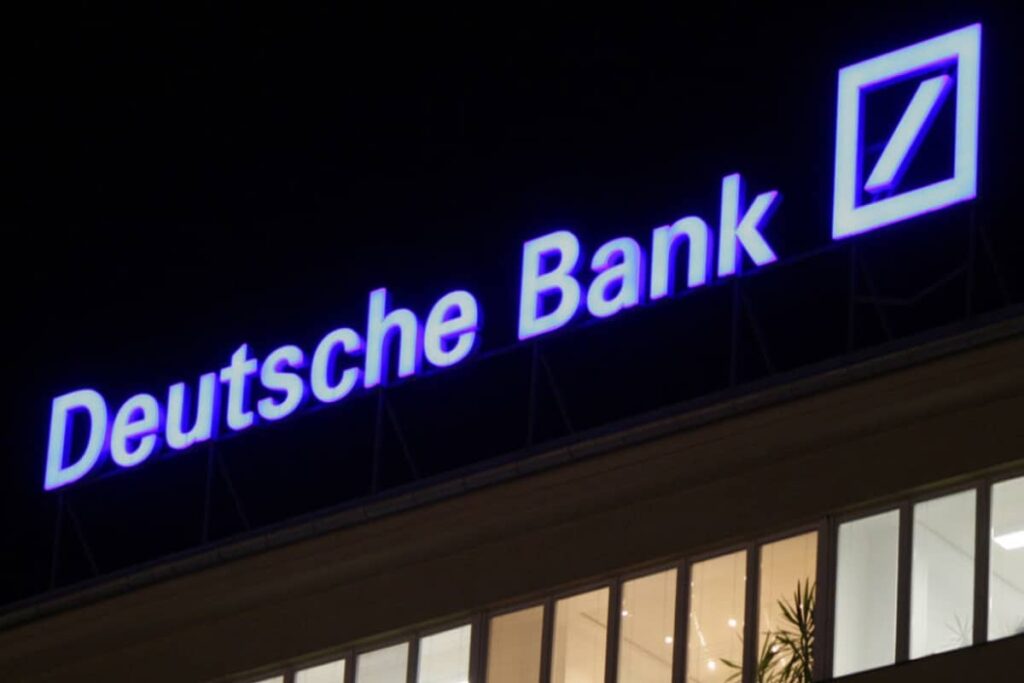With passive investment products influencing fee revenues, Deutsche Bank is looking to innovate and adapt to shifting market dynamics by leveraging blockchain technology.

Deutsche Bank AG, a German banking giant, intends to implement blockchain technology to address margin compression issues throughout the financial services industry.
Consequently, the bank has initiated testing of a platform that operates on the Ethereum blockchain.
However, leveraging Project Guardian, an initiative of the Monetary Authority of Singapore, the platform offers digital services for tokenized funds.
This project aims to explore the potential benefits of efficiency and liquidity that blockchain technology may provide.
Deutsche Bank Seeks to Address Margin Pressure
As the market adoption of passive investment products increases, fund managers continue to experience a decrease in fee revenue.
Meanwhile, the average asset management fee decreased by 22 basis points in 2023, from 25 basis points in 2015 and an additional 26 basis points in 2010, according to a study by the Boston Consulting Group.
Project Guardian is a collaborative effort between financial institutions, policymakers, and asset managers to examine the potential uses of tokenization in the foreign exchange, fixed-income, and asset management industries.
Under the direction of the Monetary Authority of Singapore, Project Guardian aims to investigate the potential efficiency and liquidity benefits that blockchain technology may provide.
Moreover, Anand Rengarajan, Deutsche Bank’s head of securities in Asia Pacific, commented on the matter:
“It will help us stay relevant because, with the kind of margin compression impacting the overall financial services industry, the only way one can survive is by innovating.”
He added that the banking giant can reduce transaction times, costs, and risks by leveraging blockchain and smart contract solutions.
An Examination of Tokenized Fund Services
Deutsche Bank is to introduce record-keeping services to help tokenized fund issuers manage investors, custody arrangements, and values.
As stated by Rengarajan, this initiative demonstrates the bank’s dedication to utilizing blockchain technology to improve operational effectiveness.
Interoperability is a primary focus in the platform’s design, guaranteeing accessibility for fund managers irrespective of the blockchain technology that underpins it.
Despite being in the proof-of-concept phase currently, Rengarajan is optimistic about the project’s potential for commercialization in the future. His further statement was:
“We anticipate that the investments made over the next two to three years, alongside previous endeavors, will pave the way for a promising commercial future.”
Deutsche Bank partnered with Taurus SA, a Swiss crypto technology firm, to initiate the development of a digital-asset custody service in a collaborative effort last year.
The banking giant also referred to Bitcoin as an important asset class last month.
